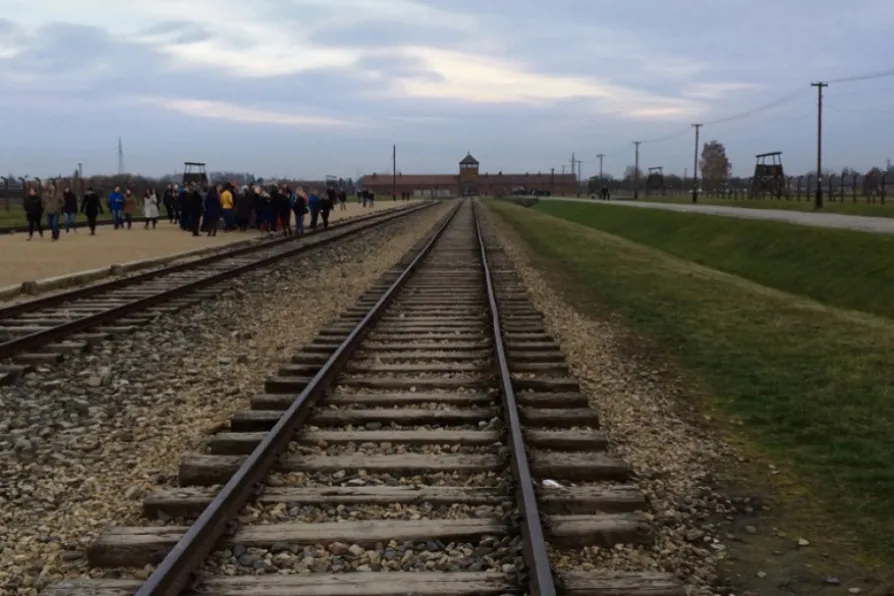From London’s holly-sellers to Engels’s flaming Christmas centrepiece, the plum pudding was more than festive fare in Victorian Britain, says KEITH FLETT
Remembering the horrors of Auschwitz
On Holocaust Memorial day, DAVID ROSENBERG looks back on his recent visit to the most notorious of the nazi death camps and reflects on the collision of the past and an increasingly racist present

 The trainline into Auschwitz
The trainline into Auschwitz
On January 27 1945, the Red Army liberated around 7,000 emaciated prisoners at Auschwitz, the largest of six mass-killing centres the nazis established on Polish soil.
As the Red Army approached, the nazis attempted to destroy evidence of their crimes, then fled, together with 60,000 starving inmates, who they force-marched, in icy temperatures, towards other camps. 15,000 died en route.
Holocaust Memorial Day was first commemorated in Britain in 2001. Its organisers chose to mark it on the the anniversary of the liberation of Auschwitz.
Similar stories

Political manipulation of history and exceptionalising of anti-semitism as a shield for Israeli war crimes are having a harmful effect on the fight against all racism and fuelling a cynicism that’s especially dangerous in today’s world, argue JULIA BARD and DAVID ROSENBERG

STEVE SILVER tells the horrifying story of the Nazis' last act of mass barbarity when they forced tens of thousands of prisoners in the camp to march into the snow at gunpoint to hide the evidence from the advancing Red Army












